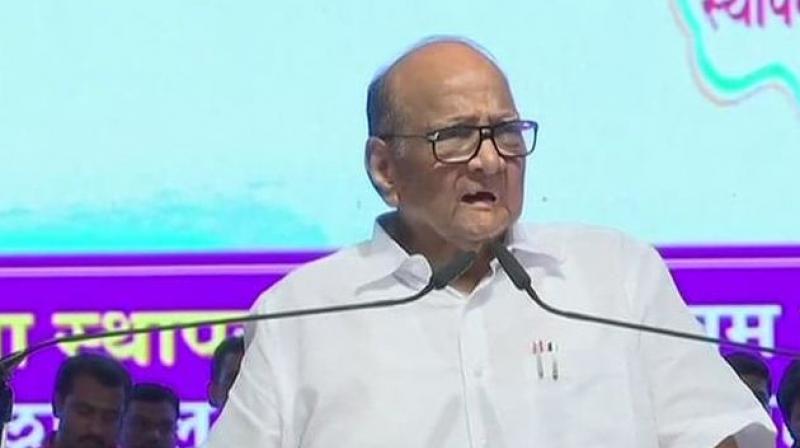CBI, ED, I-T, agencies used to play politics

In any fair-minded biography of the BJP in power, there is apt to be, along with other landmark episodes such as demonetisation and depriving Kashmir of its constitutional autonomy, a chunk dedicated to the saffron party’s ties with its political opponents.
The filing of an FIR by the Enforcement Directorate against NCP founder Sharad Pawar and others under the Prevention of Money Laundering Act earlier this week is a signifier of that relationship. The principal characteristic of the ruling side’s dealings with key national and regional parties that dare to stand up to it is to seek to demonise them. A subset of this approach is to send the ED, CBI or income-tax investigators after them with a view to reduce them in public esteem and, subliminally, create the tag of “corrupt” for them.
In some cases, the ruling party’s calculus is that targeted individuals may be terrorised into submission and switch over to the Hindutva party. This has happened in West Bengal, for instance, where a leading former Trinamul Congress leader has had criminal cases dropped against him and is now the BJP’s chief spotter in the state. A prominent BJP leader of Assam, a former Congressman, is also a defector against whom cases have been dropped.
The curious case of Mr Pawar, his nephew Ajit Pawar, a Shiv Sena MP, Anandrao Adsul, and a clutch of other Maharashtra politicians, is that their turn has come less than four weeks before the next Assembly election in the state. Evidently, they are sought to be disadvantaged.
Should our politicians be investigated? The answer is they ought to be investigated just as much as anyone else deserves that treatment if a prima facie case is made out. The trouble, however, is that the party which rules at the Centre unleashes its power only against its political opponents and their relatives. In contrast, investigations are scuttled, not begun, or cleverly suppressed through judicial manipulation when it comes to the top boys of the ruling side. (There is an impressive list.)
A noteworthy feature is that the cases against the Opposition leaders are rarely brought to a conclusion. We still hear about Bofors from BJP leaders, though many years of BJP rule have brought no fresh evidence after the Delhi high court cleared the late Rajiv Gandhi. Sonia Gandhi’s son-in-law Robert Vadra’s investigation never seems to end.
Sonia and Rahul Gandhi have been booked in the so-called National Herald case, although their culpability is hard to fathom. P. Chidambaram is sought to be humiliated in jail when investigations — based solely on documents — are long done. Congress leader D.K. Shivakumar’s remand also does not end.
The lesson is that justice in India does not depend on institutions. It’s a gift of those in power. For a democracy that is a shame we must live through until we are able to change our structures.

